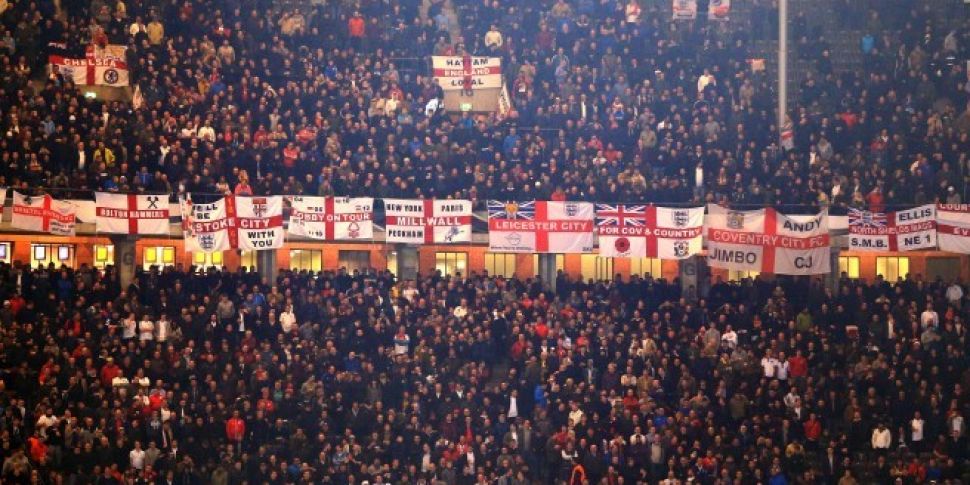"The behaviour of a section of the England support in Dortmund last night was inappropriate, disrespectful and disappointing."
Those were the uncompromising words of the English FA chief executive Greg Clarke in the wake of chants last week by a small subsection his nation's set of fans in the direction of their German hosts in Dortmund.
It was the less friendly side of what was meant to be an international friendly encounter supposed to be more focused on the farewell for striker Lukas Podolski on his final cap.
The events of recent years like moves for Scottish Independence and the beginning of the Brexit process has put the spotlight on the idea of English identity.
As part of Great Britain and the United Kingdom, much of its own separate identity has flowed through the football and rugby teams and the way that is evolving and changing is something Tom Gibbons has examined.
The Senior Lecturer in Sports Studies in the School of Social Sciences and Law at Teesside University has published a book called English National Identity and Football Fan Culture: Who Are Ya? and this week he spoke to us on Newstalk's Team 33 about the subject.
You can listen to the full interview with Tom Gibbons on the podcast player below or on iTunes:
Going back to the chants in Dortmund, they were of the stereotypical World War II variety, evoking victory over Germany.
An old favourite among a small section of fans when facing Germany has been 'Ten German Bombers' (to the tune of 'She'll Be Coming Round The Mountain') and Gibbons makes the interesting point that unlike the fans of other parts of Great Britain, that minority of English supporters that engage in such chants seem to co-opt British achievements and equate them with Englishness.
"English people haven't actually got much to grasp on in terms of identity and Britain is one of the only things and it's not the same for the Welsh or the Scottish or the Northern Irish because they've all got their very strong cultural identity," he explains.
"But for the English, Britain is really the only thing and football has been something, which even though there has been a rise in the use of the likes of the St George's Cross as being specifically English, there are still connotations of Britishness around because there's not much else to base Englishness on."
And when it comes to football, a certain representation of English identity only truly took flight in the build up to and during Euro 96, where the St George's Cross's use became mainstream.
"Euro 96 was kind of a watershed moment for the English because it was an example of a bottom-down approach to nationalism coming out and a reclaiming of the St George's Cross as being specifically English just like the Saltire of Scotland is specifically Scottish. So I think fans are trying to cling to that as being something that is specific to them where everything else seems to be lost at the moment," says Gibbons.
And on the wider issue of identity, Gibbons feels recent political events will only increase the sense of English identity for those of that background.
"I think what is happening now with Brexit along with increasing Scottish Independence does leave English people with a void in terms of identity and when there is a void in terms of identity, people tend to try and protect that we have this rise across Europe in sort of fascist groups and people focusing on their ethnic identity more than perhaps their civic identity - Britishness is meant to be a civic identity that many people can buy into," he says.
Download the brand new OffTheBall App in the Play Store & App Store right now! We've got you covered!
Subscribe to OffTheBall's YouTube channel for more videos, like us on Facebook or follow us on Twitter for the latest sporting news and content.








